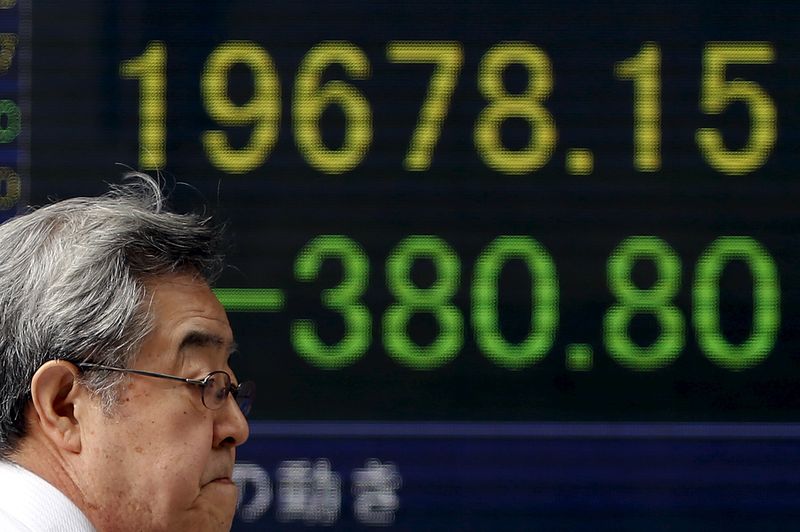This post was originally published on this site
https://i-invdn-com.akamaized.net/news/LYNXMPEB4C07I_M.jpg
Investing.com – Asia Pacific stocks were down on Friday morning, retreating from record highs as investors digested higher longer-dated bond yields and underwhelming U.S. data that dented hopes for a quick U.S. economic recovery from COVID-19.
Japan’s Nikkei 225 fell 1.15% by 10:27 PM ET (3:27 AM GMT). The country’s National Core Consumer Price (CPI) index fell 0.6% year-on-year in January, against the 0.7% drop in forecasts prepared by Investing.com and December’s 1% drop.
South Korea’s KOSPI was down 0.94% and in Australia, the ASX 200 fell 1.55%.
Hong Kong’s Hang Seng Index was down 1.18%. Hong Kong approved a second COVID-19 vaccine, Sinovac Biotech Ltd.’s (NASDAQ:SVA) Coronavac offering, on Thursday after it relaxed some social distancing measures. Registration for the city’s vaccination program for priority groups will begin on Feb. 23.
China’s Shanghai Composite was down 0.40% and the Shenzhen Component slid 1.92%.
Higher longer-dated bond yields were also on investors’ minds.
“The recent move up in longer dated core yields appears to be weighing on equity investors’ mind,” National Australia Bank (OTC:NABZY) (NAB) forex strategist Rodrigo Catril told Reuters.
Investors had bet on increased economic growth and inflation, pushing core bond yields higher in a reflation trade. The rollout of COVID-19 vaccines globally and the prospect of massive fiscal spending under U.S. President Joe Biden have also driven the reflation trade.
With rising yields weighing on investor sentiment, “disappointing U.S. jobless figures didn’t help the cause either,” NAB’s Catril added.
Investors were also surprised by an unexpected rise in the number of U.S. jobless claims. A total of 861,000 claims were filed during the previous week, against the 765,000 claims in forecasts prepared by Investing.com and the 848,000 claims filed during the previous week. The surprise jump was a stark reminder of the U.S. economic recovery’s fragility, and some investors were doubtful about how quickly it would recover from COVID-19.
With benchmark Treasury yields currently at around 12-month highs, other investors were debating whether further rises could lead to a shake-out in risk assets. However, the pause in the bond-market selloff is another reminder of the economic recovery’s fragility, and investor hopes are now pinned on a successful global vaccine rollout.
“There are so many assets that are priced on really low rates forever … as soon as you do get a hint of this idea that long-term rates are not going to be zero forever, then those are going to be the most vulnerable assets,” UBS Asset Management head of multi-asset strategy Evan Brown told Bloomberg.
Meanwhile, an unexpected cold front in Texas and surrounding areas is likely to keep oil refineries shut for another week.

